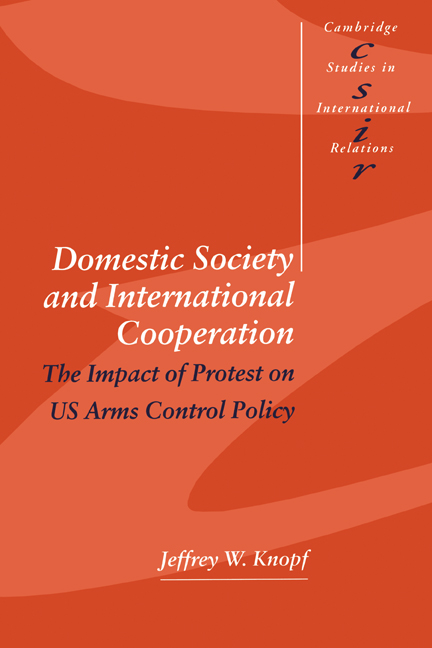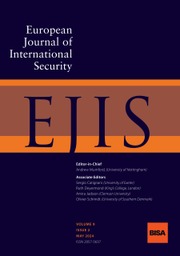Enemies in Agreement
Why do adversaries sometimes cooperate to restrain their military competition? Why do they design arms control agreements with intrusive verification in some cases but rely on minimal transparency in others? Amidst ongoing international competition, arms control remains rare despite potential mutual benefits, and agreements vary dramatically in their approaches to monitoring. This book reveals how uncertainty from domestic political changes-such as leadership transitions or social unrest- can enable arms control. It identifies two paths to agreement: during periods of uncertainty, states that previously relied on informal understandings hedge by establishing lightly-monitored agreements, while those that anticipated deception take calculated risks through agreements with intensive verification. Through comprehensive data analysis and rich case studies, Jane Vaynman challenges conventional wisdom about uncertainty in international relations while offering insights for policymakers. As states confront challenges from nuclear competition to emerging technologies, understanding when arms control becomes viable is more vital than ever.
- Bridging rigorous academic research with policy implications makes this book accessible, informative, and relevant for different audiences
- The author utilises her vast policy experience to make policy recommendations in the context of international security cooperation
- Analyses an original dataset on arms control agreements as well as case studies from the U.S.-Soviet INF Treaty and the Iran nuclear deal
Reviews & endorsements
'A must-read for scholars and policymakers alike, this book offers a novel perspective on a long-standing puzzle in international security: why states sometimes agree to arms control while often failing to do so. Its multi-method approach combines theoretical innovation, rigorous data analysis, and detailed case studies – from Cold War-era treaties to contemporary nuclear negotiations – to challenge conventional wisdom on uncertainty in world politics. Its timely findings provide crucial insights for managing military competition in an era of geopolitical upheaval. A landmark contribution to the study of arms control and international diplomacy.' Allison Carnegie, Professor of Political Science, Columbia University
'Jane Vaynman's core insight in this wonderful book is unexpected and unique: arms control agreements arise from uncertainty. It is a great message to policymakers in Russia, China and the United States: look for windows of opportunity to negotiate during times of rapid change and mistrust-like today.' Rose Gottemoeller, William J. Perry Lecturer, Stanford University
'In this superb book, Jane Vaynman solidifies herself as the leading scholar of arms control. She develops a rigorous and compelling theory about when we might have windows of opportunity for arms control, and tests it using a variety of methods including incredibly detailed historical cases not just from the usual US-Soviet instance of arms control, but also from India-Pakistan and Israel-Egypt. She provides scholars with a comprehensive treatment of the rise and fall of arms control, and provides policymakers a blueprint to be prepared to take advantage of future opportunities for arms control agreements to help manage a volatile and dangerous new nuclear age.' Vipin Narang, Frank Stanton Professor of Nuclear Security, Massachusetts Institute of Technology
'Jane Vaynman's new book is a generational leap ahead in our knowledge about arms control and international cooperation. It explores the puzzle of arms control – when states make choices to restrain themselves in developing military capabilities – and when they do not. Through multiple methods including quantitative analysis of arms control agreements and information exchange and detailed analysis of key cases from the Cold War. Her reframing of arms control as a strategic interaction provides a fascinating new path forward to understand the prospects for future international cooperation during a period of immense geopolitical instability. This book has huge relevance for both academics and policymakers. Highly recommended!' Michael C. Horowitz, Richard Perry Professor, University of Pennsylvania
'Enemies in Agreement could not be more timely. As Vaynman says, 'arms control is relatively rare', but it is also possible amidst the most acute competition. The return of great power competition and rise of China have created an urgent need for new arms control tools to avoid arms racing and misperception. Arms control, as a result, will continue to evolve and Vaynman's findings will provide an important roadmap for navigating the benefits and tradeoffs of information-sharing, trust-building, and cooperation amidst competition.' Heather Williams, Director, Project on Nuclear Issues and Senior Fellow, Defense and Security Department, Center for Strategic and International Studies
Product details
November 2025Paperback
9781009486484
340 pages
229 × 152 mm
Not yet published - available from November 2025
Table of Contents
- Acknowledgements
- 1. Arms control agreements in international relations
- 2. Cooperation under uncertainty: the domestic political determinants of agreement design
- 3. The effects of political volatility: a quantitative analysis of agreements
- 4. Agreement at the height of tension: the United States, the USSR, and the INF Treaty
- 5. A hedge on détente, a risk after war, and a bargain in asymmetric competition
- 6. Implications for scholarship and policy
- Bibliography
- Index.










